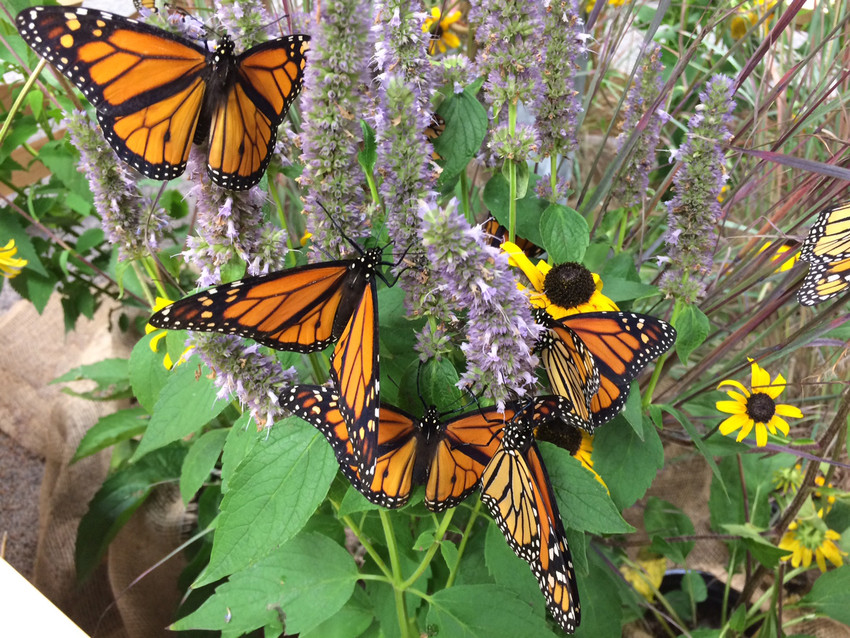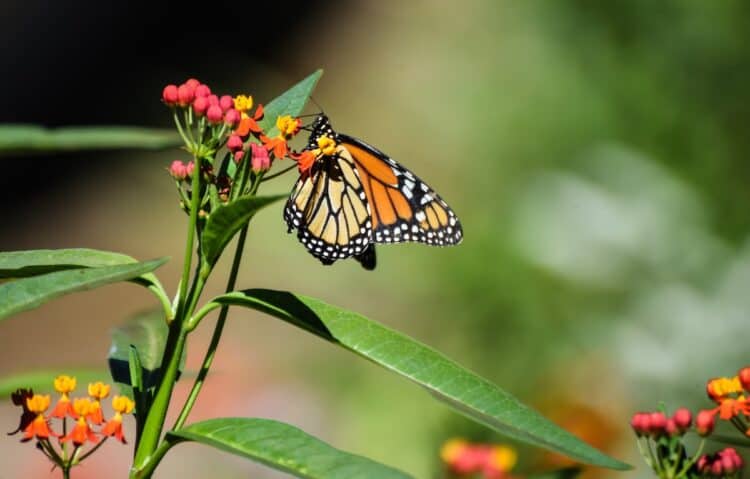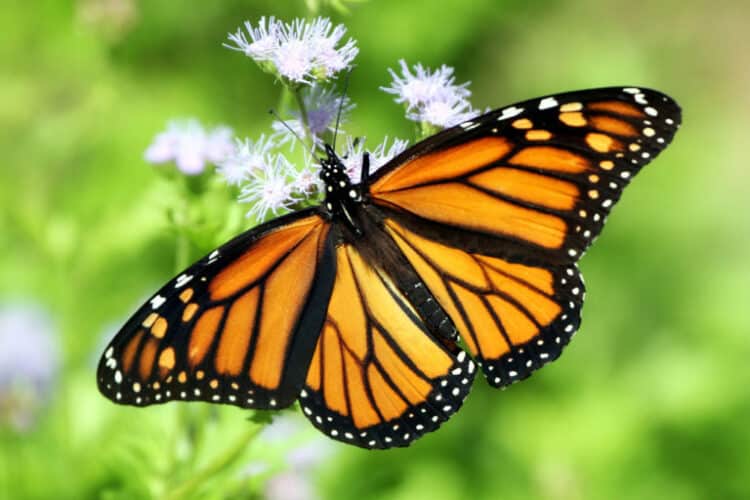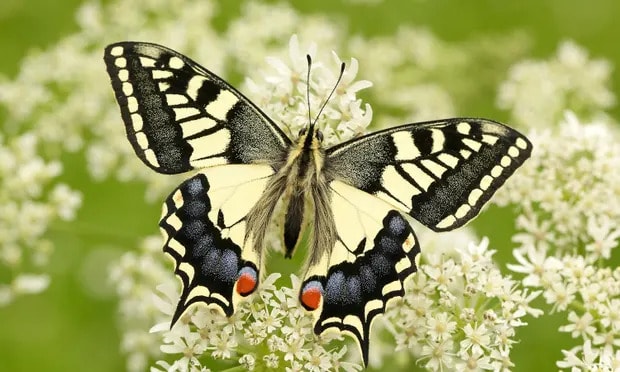Over the past two decades, populations of America’s iconic orange and black monarch butterflies have declined by more than 80 percent. Now, two environmental groups — the The Center for Biological Diversity and Center for Food Safety — have filed a notice of intent to sue the U.S. Fish and Wildlife Service for failing to protect the monarch butterfly (Danaus plexippus) under the Endangered Species Act (ESA). They filed the notice on January 5.
“Endangered Species Act protection will provide a scientific and legal blueprint for the comprehensive protection that the monarch so direly needs,” George Kimbrell, a senior attorney at Center for Food Safety, said in a statement. “It’s imperative that we protect monarchs now, before it’s too late.”

Following a dramatic decline in monarch butterfly populations, the two groups had first filed a petition in August 2014 requesting that the “Service list the monarch as a threatened species with a 4(d) rule, which would allow for protection of the monarch but also still permit activities to continue that promote the conservation of the species, such as scientific research and monitoring, citizen monitoring and tagging, and non-commercial classroom and household rearing of monarchs for educational purposes.”
In December 2014, the U.S. FWS issued a positive decision on this petition, and launched an official review of the butterfly’s status. However, the agency has failed to issue a legally required “12-month finding” of the review, according to a media release by the Center for Biological Diversity, which will determine whether the monarch butterfly will be protected under the Act.“More than 12 months have passed without the FWS making the required 12-month finding for the monarch butterfly,” the notice states. “Accordingly, FWS is violating Section 4 of the ESA and failing to ensure that protection of endangered species occurs in a timely manner thereby avoiding further decline and increased risk of extinction.”
The Center for Biological Diversity and Center for Food Safety added in the notice that if the U.S. FWS does not act to correct this violation, or agree to discuss a schedule for completing the overdue finding, the groups will pursue litigation against the agency. The agency has 60 days to respond.
The decline of monarchs is largely due to the loss of habitat, conservationists say. The monarchs lay eggs on milkweed plants, on which their caterpillar feed. However, a surge in the use of Monsanto’s Roundup herbicide, and Roundup-resistant genetically engineered crops in the Midwest — where most of the monarchs are born — has been wiping out milkweed plants from corn and soybean fields.
In fact, scientists estimate that in the past 20 years the butterflies may have lost more than 165 million acres of habitat, including nearly a third of their summer breeding grounds.
Last year, the FWS announced a total $3.2 million in support of monarch conservation projects. But this amount is far less than what would be required under the Endangered Species Act to restore monarch habitats, conservationists say.
“The money the government has pledged sounds like a lot, but the truth is it isn’t even enough to restore 1 percent of the habitat that’s been lost,” Tierra Curry, a senior scientist at the Center for Biological Diversity, said in the statement. “We’re at risk of losing an animal that’s as American as apple pie, and nothing short of Endangered Species Act protection will guarantee that we save the monarch.”
“Despite the expected increase in the overwintering monarch population this year due to favorable weather, the monarch is still severely jeopardized by milkweed loss in its summer breeding grounds due to increasing herbicide use on genetically engineered crops,” Kimbrell added. “We will continue to do everything we can to ensure monarchs are protected under the Endangered Species Act.”
This article was first published by Mongabay.com on 12 Jan 2016.
We invite you to share your opinion whether the US Fish and Wildlife Service should be sued for failing to protect the Monarch butterfly? Please vote and leave your comments at the bottom of this page:
Thank you for voting.







Leave a Reply